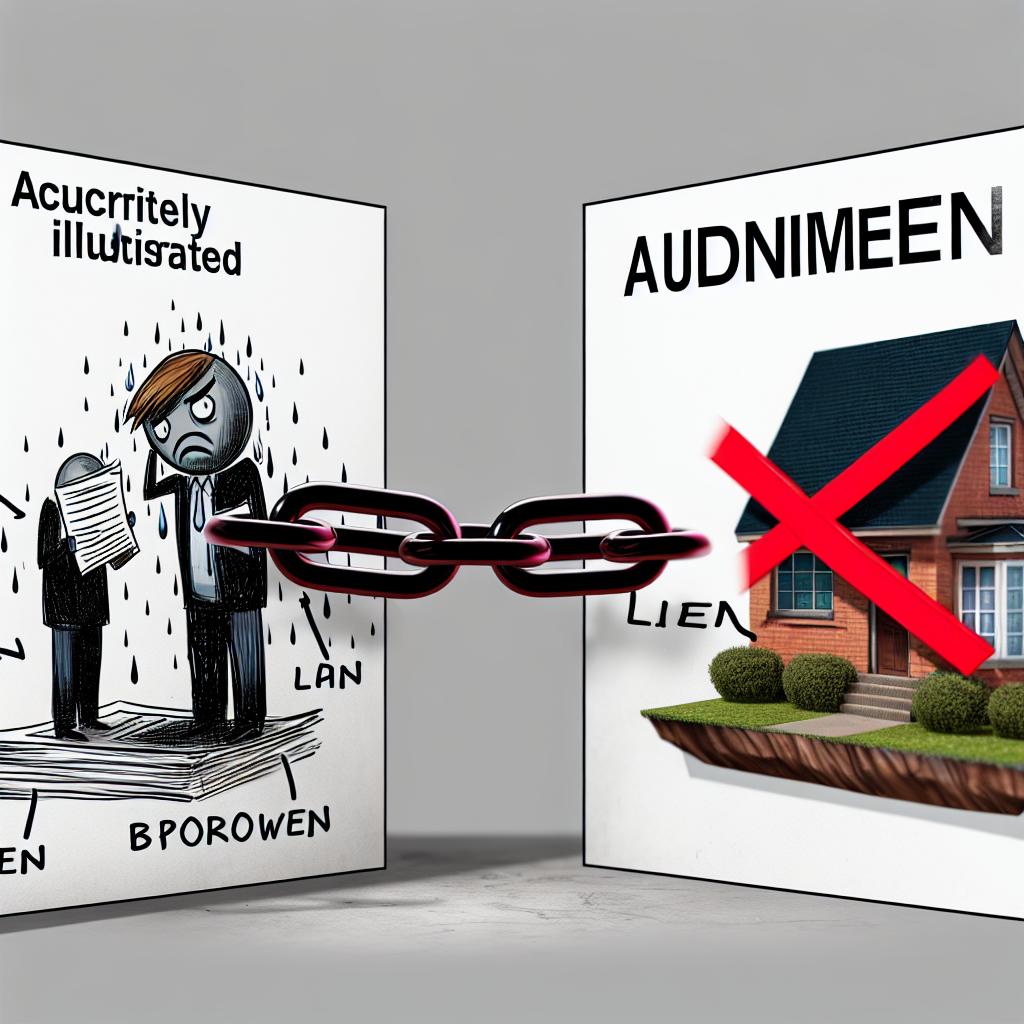Understanding Judgment Liens
A judgment lien represents a legal claim that creditors can enforce to secure debt repayment from a debtor through a court ruling. This mechanism effectively offers a creditor the right to take possession of a debtor’s property if the debtor neglects to fulfill their financial obligations. Primarily, these liens affect real estate holdings, significantly impacting property-related transactions and the financial landscape of the debtor.
How Judgment Liens are Established
The establishment of a judgment lien begins when a court awards a creditor a monetary judgment, upon the debtor failing to meet their debt obligations. Once a court decrees in favor of the creditor, the creditor can subsequently record this judgment with the appropriate county office. This act of recording transforms the judgment into a lien on the debtor’s property. As a result, it attaches to any real property owned by the debtor in that county. This ensures the creditor’s claim is publicly documented, securing their interest in the debtor’s property assets.
The Impact on Borrowers
A judgment lien can have various repercussions for borrowers, affecting their financial, credit, and property ownership statuses.
Property Ownership and Sale: A property encumbered by a judgment lien becomes difficult to sell or refinance. The lien effectively complicates any transfer of ownership, as it must be paid off before a clear title is passed to a new buyer. Thus, the borrower faces hurdles in property transactions, needing to address the lien to dissolve any legal claims the creditor holds over their property.
Credit Score: The presence of a judgment lien can detrimentally impact a borrower’s credit score. Because judgment liens are public records, they appear on credit reports, possibly lingering there for up to seven years. This presence can make acquiring new credit more difficult, influencing a borrower’s financial reputation and making lenders cautious in extending further credit or loans.
Potential for Forced Sale: A creditor, through additional legal measures, might proceed with a forced sale of the debtor’s property to satisfy the debt secured by the lien. However, this process is subject to jurisdictional differences and necessitates specific legal proceedings. The implications for the debtor can be severe, with the potential loss of their property to settle outstanding debts, underscoring the importance of understanding local laws and procedures.
Legal Considerations
The complexity surrounding judgment liens requires debtors to consider legal avenues and defenses available to them. Borrowers may dispute a lien’s validity if procedural errors have occurred during the lien’s establishment or if the debt itself is contested. It’s prudent for individuals facing a judgment lien to engage with a legal professional to explore their options. Doing so provides a comprehensive understanding of the legal framework and procedural intricacies involved, aiding in formulating a strategic defense or response.
Removing a Judgment Lien
Several potential methods exist for removing judgment liens, each dependent on satisfying specific conditions or engaging in specific legal actions:
Payment or Settlement: The lien can be cleared if the debtor resolves the outstanding debt in full. Alternatively, negotiating a payment settlement with the creditor could lead to the lien’s removal, contingent on mutually agreed terms between the debtor and the creditor.
Discharge in Bankruptcy: During certain bankruptcy proceedings, a judgment lien may be voided, especially when the lien encumbers property considered exempt under bankruptcy laws. This process provides debtors an avenue to relieve themselves of the lien’s burden, albeit under complex legal conditions often requiring expert guidance.
Court Motion: Debtors can file a motion in court to have the lien removed if it is satisfied yet still appears on record, or if evidence supports its improper attachment. This legal avenue demands clear documentation and potentially legal representation, ensuring the lien’s removal due to appropriate legal grounds.
Understanding judgment liens and their implications requires a diligent approach from borrowers who find themselves impacted by them. These liens serve as a vital tool for creditors, ensuring debt repayment. However, they can significantly challenge borrowers, affecting property rights and financial options. Exploring potential remedies, such as settlements, legal challenges, or bankruptcy options, is essential. For further clarification or information, consulting a financial advisor or a legal expert who specializes in property law is advisable, providing tailored guidance aligning with individual circumstances and legal jurisdiction.
